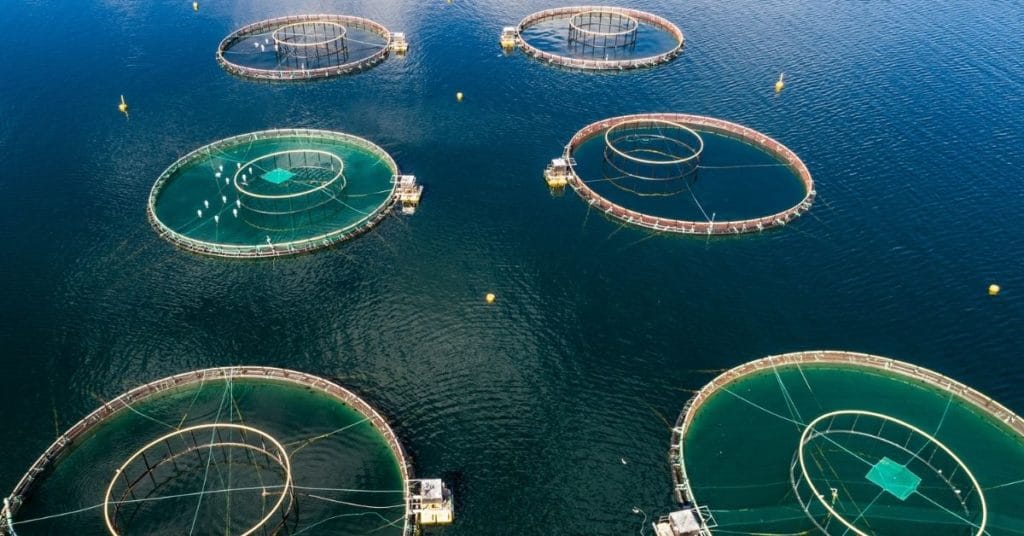Introduction Normally the cost of compliance with mandatory regulations may not be offset, partially or fully, by State aid because it lacks incentive effect. The beneficiaries would have to incur those costs anyway. However, even in the case of mandatory compliance, State aid may still have an incentive effect if the undertakings concerned would cease altogether the activity in question. […]
State Aid Law
Blog
State Aid Uncovered Blog
State Aid Uncovered ×
10. September 2024 |
State Aid Uncovered
by Phedon Nicolaides
30. July 2024 |
State Aid Uncovered
by Phedon Nicolaides
Introduction In December 2020, the Commission approved State aid scheme SA.59029 by which Italy compensated airlines for damage they had suffered as a result of covid-19-related restrictions, in the period from 1 March to 15 June 2020. Eligible airlines were only those that were licensed in Italy. The aid was approved on the basis of Article 107(2)(b) TFEU. In May […]
17. October 2023 |
State Aid Uncovered
by Phedon Nicolaides
Introduction On 28 September 2023, the Court of Justice, in case C-320/21 P, Ryanair v European Commission, delivered its first judgment in a series of appeals brought by Ryanair challenging the dismissal by the General Court of its action in multiple cases seeking the annulment of various Commission decisions authorising aid to airlines during the covid-19 pandemic. Both before the […]
8. November 2022 |
State Aid Uncovered
by Phedon Nicolaides
Compensation for damage suffered by undertakings as a result of a natural disaster constitutes State aid. The compensation is compatible with the internal market only if, first, there is a causal relationship between the natural disaster and the damage and, second, the amount of compensation does not exceed the amount of the damage. Introduction Financial assistance in the form of […]
22. February 2022 |
State Aid Uncovered
by Phedon Nicolaides
Compensation for damage caused by protected animals is State aid. Member States may categorise compensatory payments as de minimis aid and refuse to make payments in excess of the de minimis threshold. Introduction Advantage in the meaning of Article 107(1) TFEU is any benefit granted by the state that is not available under normal market conditions. Normal market conditions are […]
15. February 2022 |
State Aid Uncovered
by Phedon Nicolaides
An event that causes damage for which the state is liable is distinct from the act that confers the right for compensation. Introduction The concept of State aid covers all resources that are controlled by the state, regardless of the reason why such resources may be transferred to or put at the disposal of an undertaking. On 25 January 2022, […]
9. November 2021 |
State Aid Uncovered
by Phedon Nicolaides
Funds used in compensation mechanisms mandated by the state become state resources Introduction The Court of Justice has stressed repeatedly that any resource over which the state can exercise control becomes a state resource, regardless of whether it is managed by a public authority or a private entity. Member States, however, keep inventing novel and complicated arrangements in which mandated […]
7. September 2021 |
State Aid Uncovered
by Phedon Nicolaides
The compensation for public service obligations may include reasonable profit and incentives for cost reduction. Introduction Member States have discretion to define services they consider to be in the general economic interest [SGEI]. However, they need to justify that definition. The Court of Justice has ruled on numerous occasions that an SGEI has “special characteristics” that set it apart from […]
27. July 2021 |
State Aid Uncovered
by Phedon Nicolaides
A public service obligation must be imposed by an act of entrustment that describes in detail the terms of the obligation, identifies the undertaking that offers the service and lays down procedures for preventing over-compensation. Introduction The purpose of Commission Decision 2012/21 on services of general economic interest [SGEI] is, like the GBER, to exempt certain aid measures from prior […]
25. May 2021 |
State Aid Uncovered
by Phedon Nicolaides
As long as the compensation does not exceed the net extra costs of the universal service activities, it may be used to offset other costs. Introduction The rules on State aid for services of general economic interest [SGEI] are very generous because they allow both investment and operating aid. Yet, it is not easy to comply with those rules because […]
State Aid Uncovered ×
10. September 2024 |
State Aid Uncovered
by Phedon Nicolaides
Introduction Normally the cost of compliance with mandatory regulations may not be offset, partially or fully, by State aid because it lacks incentive effect. The beneficiaries would have to incur those costs anyway. However, even in the case of mandatory compliance, State aid may still have an incentive effect if the undertakings concerned would cease altogether the activity in question. […]
30. July 2024 |
State Aid Uncovered
by Phedon Nicolaides
Introduction In December 2020, the Commission approved State aid scheme SA.59029 by which Italy compensated airlines for damage they had suffered as a result of covid-19-related restrictions, in the period from 1 March to 15 June 2020. Eligible airlines were only those that were licensed in Italy. The aid was approved on the basis of Article 107(2)(b) TFEU. In May […]
17. October 2023 |
State Aid Uncovered
by Phedon Nicolaides
Introduction On 28 September 2023, the Court of Justice, in case C-320/21 P, Ryanair v European Commission, delivered its first judgment in a series of appeals brought by Ryanair challenging the dismissal by the General Court of its action in multiple cases seeking the annulment of various Commission decisions authorising aid to airlines during the covid-19 pandemic. Both before the […]
8. November 2022 |
State Aid Uncovered
by Phedon Nicolaides
Compensation for damage suffered by undertakings as a result of a natural disaster constitutes State aid. The compensation is compatible with the internal market only if, first, there is a causal relationship between the natural disaster and the damage and, second, the amount of compensation does not exceed the amount of the damage. Introduction Financial assistance in the form of […]
22. February 2022 |
State Aid Uncovered
by Phedon Nicolaides
Compensation for damage caused by protected animals is State aid. Member States may categorise compensatory payments as de minimis aid and refuse to make payments in excess of the de minimis threshold. Introduction Advantage in the meaning of Article 107(1) TFEU is any benefit granted by the state that is not available under normal market conditions. Normal market conditions are […]
15. February 2022 |
State Aid Uncovered
by Phedon Nicolaides
An event that causes damage for which the state is liable is distinct from the act that confers the right for compensation. Introduction The concept of State aid covers all resources that are controlled by the state, regardless of the reason why such resources may be transferred to or put at the disposal of an undertaking. On 25 January 2022, […]
9. November 2021 |
State Aid Uncovered
by Phedon Nicolaides
Funds used in compensation mechanisms mandated by the state become state resources Introduction The Court of Justice has stressed repeatedly that any resource over which the state can exercise control becomes a state resource, regardless of whether it is managed by a public authority or a private entity. Member States, however, keep inventing novel and complicated arrangements in which mandated […]
7. September 2021 |
State Aid Uncovered
by Phedon Nicolaides
The compensation for public service obligations may include reasonable profit and incentives for cost reduction. Introduction Member States have discretion to define services they consider to be in the general economic interest [SGEI]. However, they need to justify that definition. The Court of Justice has ruled on numerous occasions that an SGEI has “special characteristics” that set it apart from […]
27. July 2021 |
State Aid Uncovered
by Phedon Nicolaides
A public service obligation must be imposed by an act of entrustment that describes in detail the terms of the obligation, identifies the undertaking that offers the service and lays down procedures for preventing over-compensation. Introduction The purpose of Commission Decision 2012/21 on services of general economic interest [SGEI] is, like the GBER, to exempt certain aid measures from prior […]
25. May 2021 |
State Aid Uncovered
by Phedon Nicolaides
As long as the compensation does not exceed the net extra costs of the universal service activities, it may be used to offset other costs. Introduction The rules on State aid for services of general economic interest [SGEI] are very generous because they allow both investment and operating aid. Yet, it is not easy to comply with those rules because […]
State Aid Uncovered ×
10. September 2024 |
State Aid Uncovered
by Phedon Nicolaides
Introduction Normally the cost of compliance with mandatory regulations may not be offset, partially or fully, by State aid because it lacks incentive effect. The beneficiaries would have to incur those costs anyway. However, even in the case of mandatory compliance, State aid may still have an incentive effect if the undertakings concerned would cease altogether the activity in question. […]
30. July 2024 |
State Aid Uncovered
by Phedon Nicolaides
Introduction In December 2020, the Commission approved State aid scheme SA.59029 by which Italy compensated airlines for damage they had suffered as a result of covid-19-related restrictions, in the period from 1 March to 15 June 2020. Eligible airlines were only those that were licensed in Italy. The aid was approved on the basis of Article 107(2)(b) TFEU. In May […]
17. October 2023 |
State Aid Uncovered
by Phedon Nicolaides
Introduction On 28 September 2023, the Court of Justice, in case C-320/21 P, Ryanair v European Commission, delivered its first judgment in a series of appeals brought by Ryanair challenging the dismissal by the General Court of its action in multiple cases seeking the annulment of various Commission decisions authorising aid to airlines during the covid-19 pandemic. Both before the […]
8. November 2022 |
State Aid Uncovered
by Phedon Nicolaides
Compensation for damage suffered by undertakings as a result of a natural disaster constitutes State aid. The compensation is compatible with the internal market only if, first, there is a causal relationship between the natural disaster and the damage and, second, the amount of compensation does not exceed the amount of the damage. Introduction Financial assistance in the form of […]
22. February 2022 |
State Aid Uncovered
by Phedon Nicolaides
Compensation for damage caused by protected animals is State aid. Member States may categorise compensatory payments as de minimis aid and refuse to make payments in excess of the de minimis threshold. Introduction Advantage in the meaning of Article 107(1) TFEU is any benefit granted by the state that is not available under normal market conditions. Normal market conditions are […]
15. February 2022 |
State Aid Uncovered
by Phedon Nicolaides
An event that causes damage for which the state is liable is distinct from the act that confers the right for compensation. Introduction The concept of State aid covers all resources that are controlled by the state, regardless of the reason why such resources may be transferred to or put at the disposal of an undertaking. On 25 January 2022, […]
9. November 2021 |
State Aid Uncovered
by Phedon Nicolaides
Funds used in compensation mechanisms mandated by the state become state resources Introduction The Court of Justice has stressed repeatedly that any resource over which the state can exercise control becomes a state resource, regardless of whether it is managed by a public authority or a private entity. Member States, however, keep inventing novel and complicated arrangements in which mandated […]
7. September 2021 |
State Aid Uncovered
by Phedon Nicolaides
The compensation for public service obligations may include reasonable profit and incentives for cost reduction. Introduction Member States have discretion to define services they consider to be in the general economic interest [SGEI]. However, they need to justify that definition. The Court of Justice has ruled on numerous occasions that an SGEI has “special characteristics” that set it apart from […]
27. July 2021 |
State Aid Uncovered
by Phedon Nicolaides
A public service obligation must be imposed by an act of entrustment that describes in detail the terms of the obligation, identifies the undertaking that offers the service and lays down procedures for preventing over-compensation. Introduction The purpose of Commission Decision 2012/21 on services of general economic interest [SGEI] is, like the GBER, to exempt certain aid measures from prior […]
25. May 2021 |
State Aid Uncovered
by Phedon Nicolaides
As long as the compensation does not exceed the net extra costs of the universal service activities, it may be used to offset other costs. Introduction The rules on State aid for services of general economic interest [SGEI] are very generous because they allow both investment and operating aid. Yet, it is not easy to comply with those rules because […]









